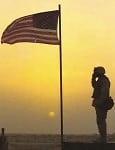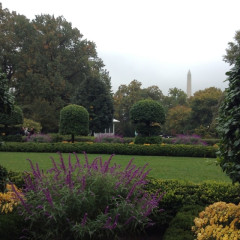 [Image via The Well Timed Period]
[Image via The Well Timed Period]
'Round these parts, Memorial Day weekend is known as the inauguration of the summer season, a time of laid-back fiestas and not-so laid-back benefits, of evermore opulent nightclubs with evermore pricy bottle service. Salvageable memories are most likely a mixture of white (finally!), charcoal, mud, and endless speeches. Yesterday, a friend asked me what Memorial Day stood for, and my embarrassingly vague response (err...dead soldiers?), made me rushed to Wikipedia in hopes of atonement and answers. Below, a few of my findings (yes, I double-checked; I know Wiki isn't always honest).
the first memorial day was observed by liberated slaves at the Charleston race track in 1865, but it wasn't officially recognized until May 5,1866, in Waterloo, NY, or widely celebrated until May 30,1868
the holiday was formerly known as "Decoration Day," and meant to honor Union casualties by decorating their graves, but was changed to "Memorial Day" due to southern contention (some southern states continue to hold their own Confederate Memorial Day)
After World War I, all the United States' war casualties were honored on Memorial Day
In 1968, Congress passed the Uniform Monday Holiday Act, moving Columbus Day, Washington's Birthday (now Presidents' Day), Veterans Day, and Memorial Day to specific Mondays in order to create our beloved three-day weekends.
In Arlington National Cemetery, the 1,200 soldiers of the 3rd U.S. Infantry put flags before each of the 260,000 gravestones the Thursday before Memorial Day. The soldiers patrol for the next three days and nights to make sure that not one flag falls.
At three pm on the day itself, there is a nationwide moment of remembrance, either in silence or while listening to "Taps."


.jpg)
.jpg)



.jpg)
.jpg)
.jpg)



